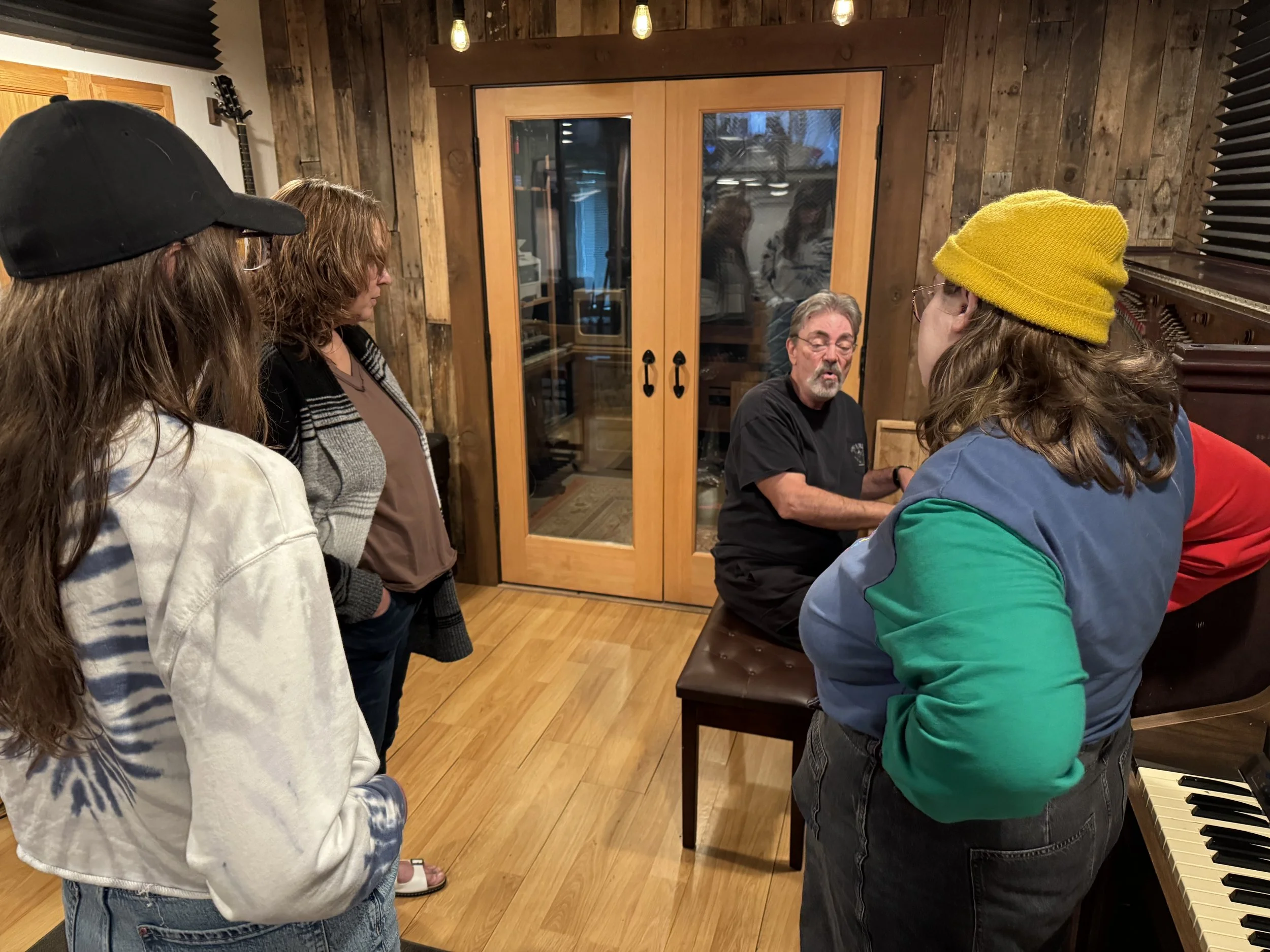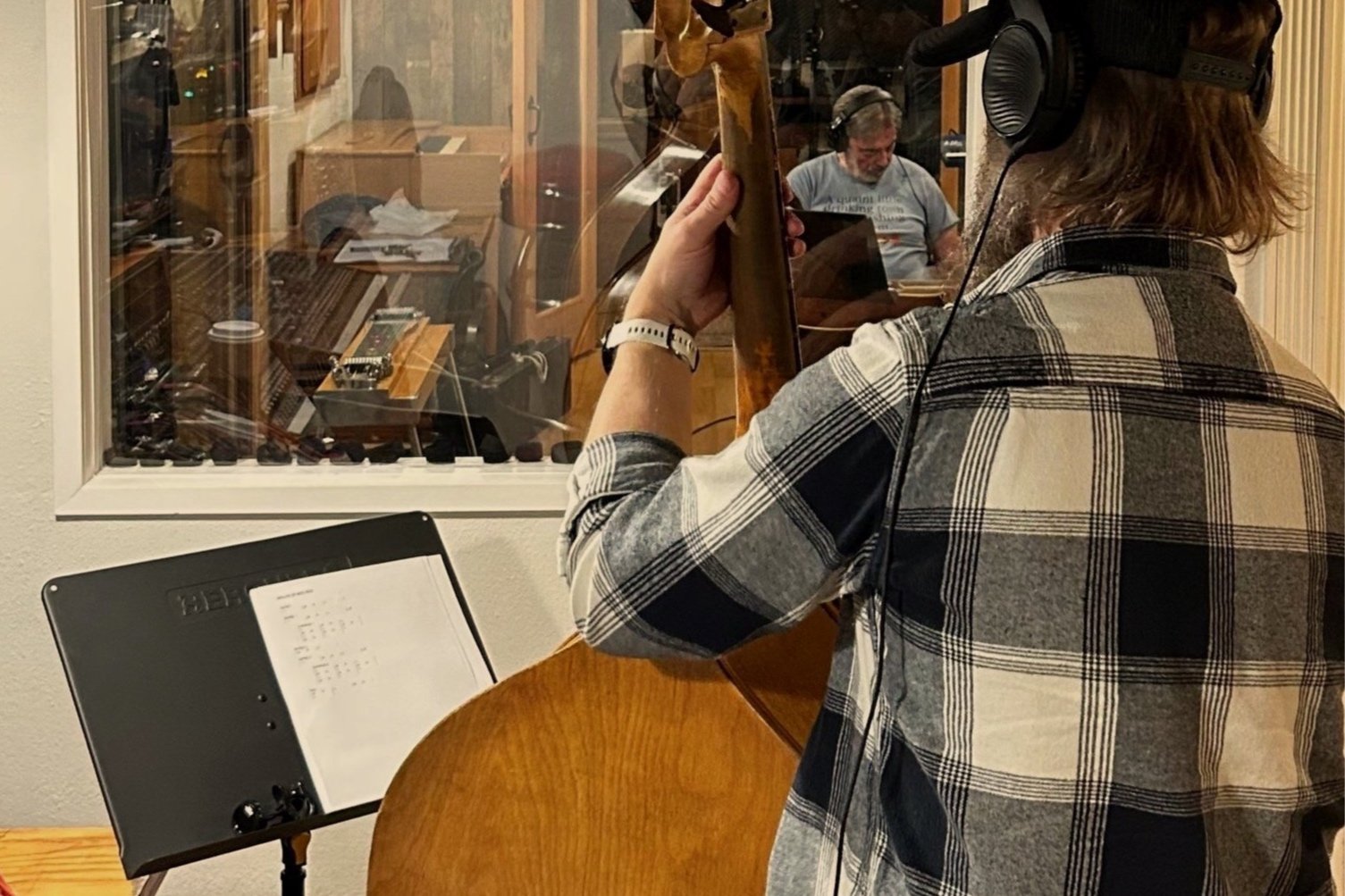How to Prepare for Studio Day: Maximize Time, Minimize Stress, and Capture Your Best Work
In our last blog post, we tackled the subject of click tracks: "The Click Track Dilemma: When to Use It, When to Let It Go." That post was all about timing—literal and metaphorical. We looked at how a click can shape a performance, and when letting go of it might unlock something deeper. Now, we’re zooming out a little to look at the bigger picture: studio day itself. Specifically, how to prepare for it in a way that allows you to stay focused, stay creative, and walk out with something you’re proud of.
Come prepared with complete compositions, ready to record
Let’s start with the obvious, which is also the most often overlooked: know your material. If you’re heading into a session with a song that isn’t finished—structurally, lyrically, or emotionally—you’re setting yourself up for frustration. The studio is a place to capture performances, not to figure out if the chorus should come back a third time. Writing and arranging can be part of the studio process, but it shouldn’t be the default. The more decisions you’ve made ahead of time, the more headspace you’ll have for the things that truly require spontaneity.
Have a plan—but stay flexible
That said, being prepared doesn’t mean being rigid. One of the most powerful things you can bring into a session is a clear plan—and a willingness to let it change. If you show up without a plan, chances are you’ll just wander. Ideas might get tossed around, time will get chewed up, and you’ll leave feeling like you were close to something, but never quite got there. On the flip side, if you come in clinging too tightly to a set idea of how everything has to go, you risk getting stuck. Creativity thrives in a space where structure and flexibility work together. Know what you want to do, but remain open to the idea that there might be a better way to do it.
Prepare your materials for clear communication
Good preparation also means communicating clearly—with your bandmates, your producer, and your engineer. One of the best ways to do this is to have your materials ready. Bring lyric sheets if needed. Print out chord charts or Nashville numbers for your players. Tools like iReal Pro, platforms like Chordie, or notation software like MuseScore Studio can help you put together clean, readable reference sheets ahead of time.
Make sure everything is legible, accurate, and finalized before you step into the room. This isn’t about micromanaging the session—it’s about giving people the tools they need to respond freely and confidently. A clear chart doesn’t stifle creativity. It sets a foundation from which musical ideas can grow. It allows conversations about the music to be rooted in a shared understanding of what’s going on.
Don’t let gear hold you back
And while we’re on the subject of tools: make sure your gear is ready, too. This is another one that seems obvious—until it isn’t. Change your strings before the session. Replace worn-out drum heads. Make sure your guitar’s intonation is solid and your pedals are behaving. Bring backups: tuners, sticks, capos, patch cables, extra picks—whatever you think you won’t need until suddenly you do.
If you’re looking to re-up on essentials or troubleshoot a last-minute issue, places like Sweetwater offer a wide range of reliable gear, accessories, and support to get you studio-ready. Studio time is expensive, and losing an hour to technical problems because of avoidable gear issues can derail more than just the schedule.
Take care of your body and mind
But preparation isn’t just technical or musical. It’s also physical and mental. Get a good night’s sleep before the session. Eat something nourishing. Bring snacks that won’t spike your blood sugar and crash your focus. Stay hydrated. If you’re singing, bring water or tea that won’t dry you out. A band running on fumes and empty stomachs won’t be at their best in the studio. These little details can seem minor, but in a long session, they make a difference.
Take care of the business first
Finally, take care of the money before you walk through the door. If you’re in a band, decide ahead of time how the session is being paid for. Don’t sort it out on the couch five minutes before you track. Designate one person to handle payment. Most studios expect to be paid up front anyway, so have that conversation before the session begins. When business is handled in advance, it clears the space for the music to come first.
Come ready so you can be free
At the end of the day, preparation is about creating the conditions where your best work can happen. It’s not about locking everything in. It’s about showing up ready to respond, to lead when necessary, and to trust the process when things evolve. A well-prepared artist has more room to be free. And freedom, in the studio, is often where the magic lives.
Ready to book your next session?
If you’re gearing up for a studio day—or want to rehearse—we’d love to help you make the most of it. Looking for a rehearsal studio in Denver? Studio B is ready when you are. Reach out to book your next session, ask questions, or talk through your project goals. The more prepared you are, the more fun we can have. Let’s make something great together.


